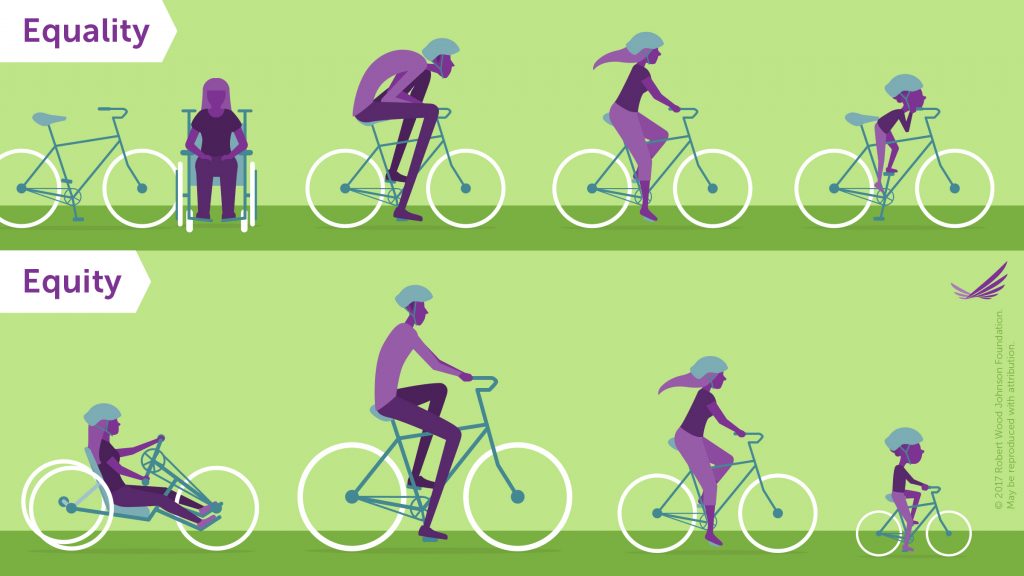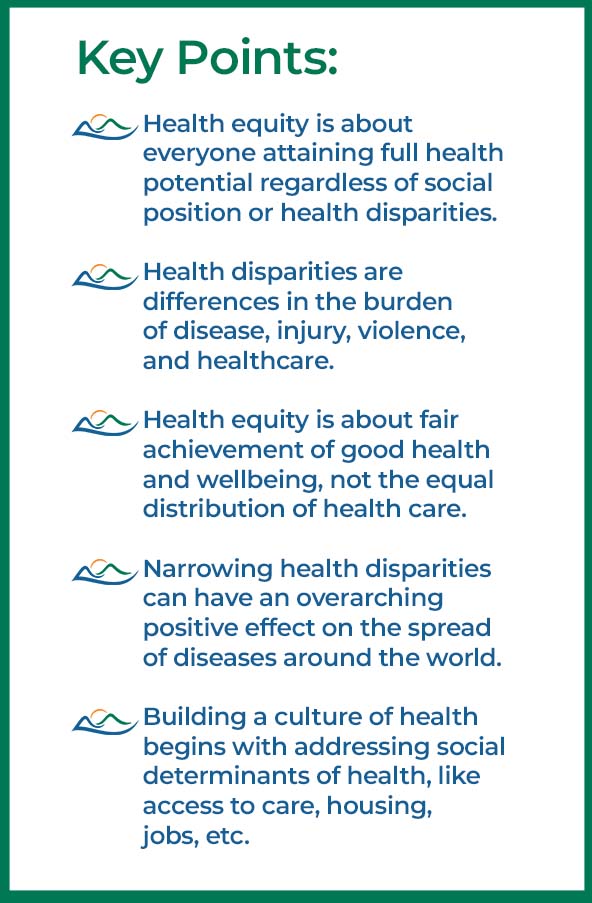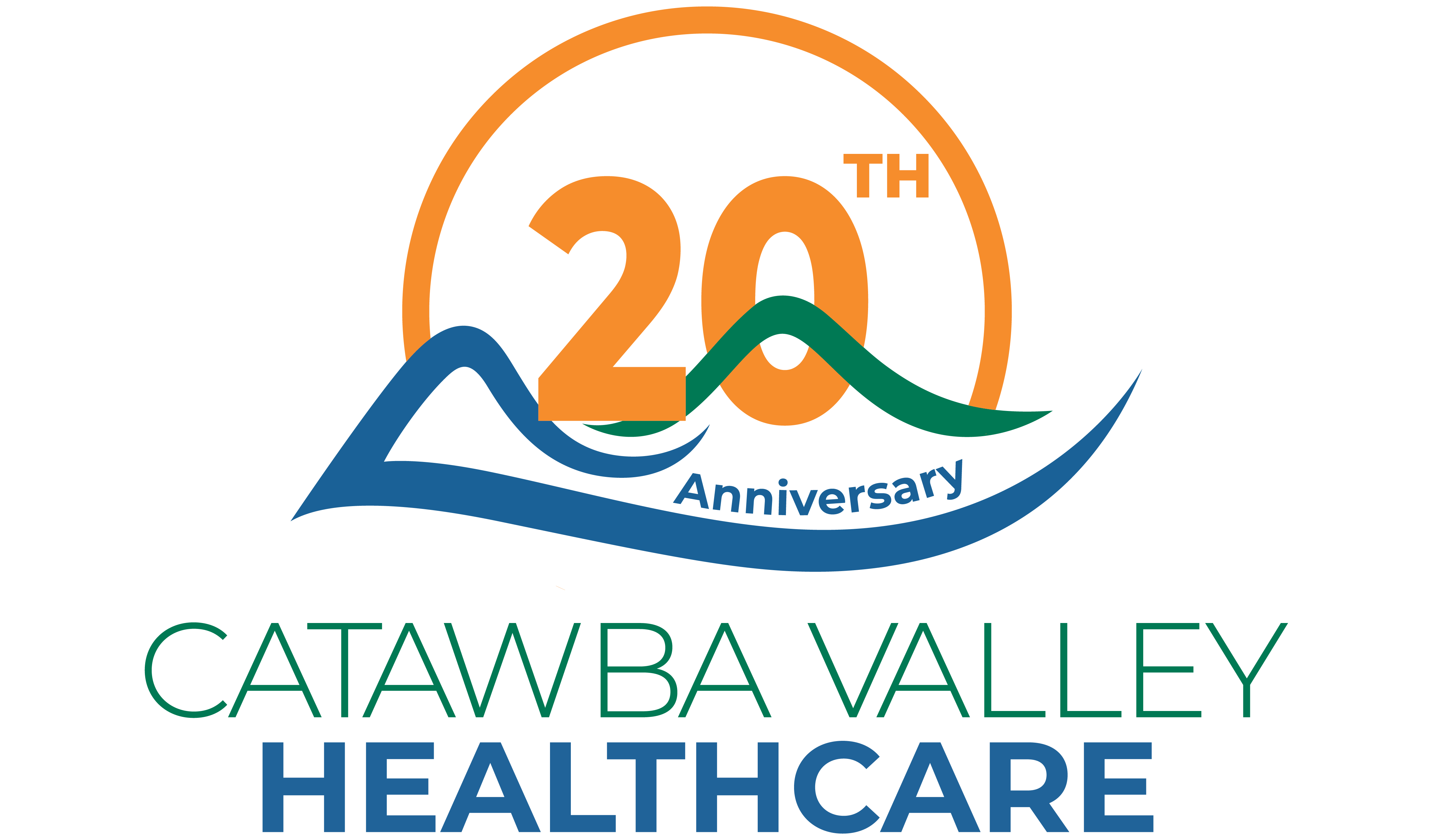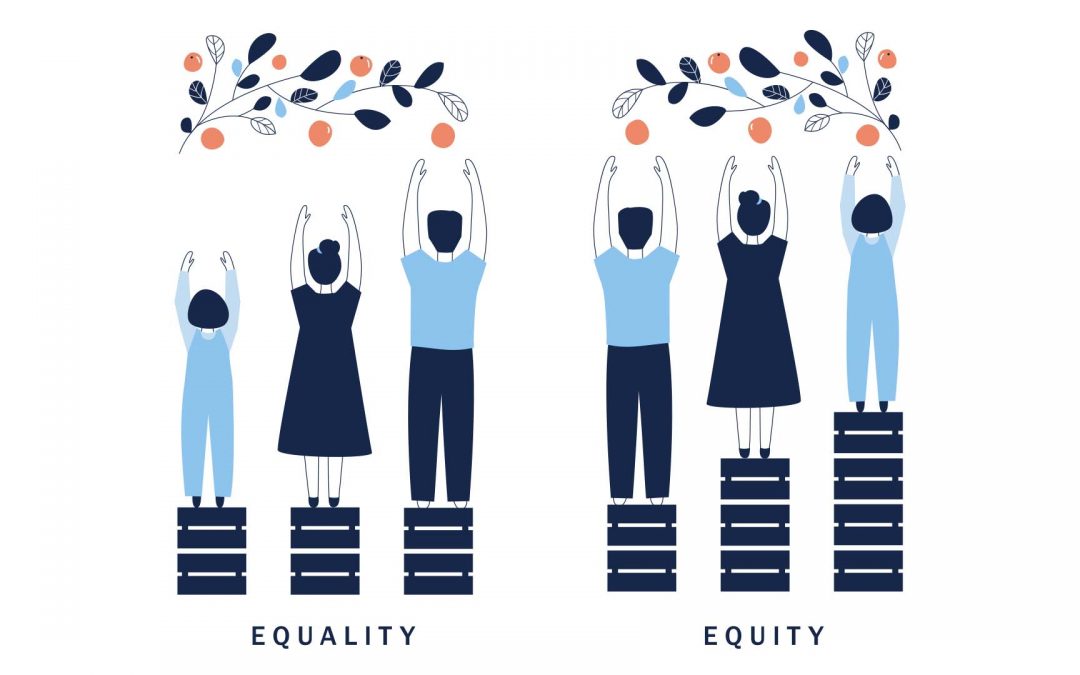Achieving health equity in a community, state, country, or in the world, requires a shared vision of increasing not only access to quality health care, but also addressing the unique needs of different populations and eliminating barriers of cost and other forms of financial hardship. Health equity is both a moral and economic issue.
What Exactly Does Health Equity Mean?
Health equity is defined as the opportunity for everyone to attain their full health potential regardless of social position or health disparities.
The Centers for Disease Control and Prevention (CDC) identifies health disparities as “preventable differences in the burden of disease, injury, violence, or opportunities to achieve optimal health that are experienced by socially disadvantaged populations.”
Health care disparity typically refers to differences between groups of people in their access to health insurance coverage. This includes their access to, and use of, health care as well as the quality of the health care they receive.
Addressing issues of health equity must begin first with an understanding of the difference between health equity and health equality. As noted by Johns Hopkins Alliance for a Healthier World, health equity is about “the fair achievement of good health and wellbeing, and not simply the equal distribution of health care.”
Health Equity vs. Health Equality: One Size Does Not Fit All
The image below from the Robert Wood Johnson Foundation illustrates the difference between health equity and health equality. Imagine that health care is like the production and distribution of bicycles. If manufacturers made all bicycles the same size, and everyone in society was given one bike, equality would be achieved. But, as the graphic illustrates, a disabled individual could not ride the one-size-fits-all bike. Nor the tall man or the small child. Equity is achieved when everyone attains the type of bike that meets their individual needs. The same is true for health care; one size does not fit all.

#PromoteHealthEquity
The Pathway to Achieving Health Care Equity
The pathway to achieving health care equity begins with not treating everyone equally but treating everyone fairly according to their circumstances. In some cases, this might mean helping people recognize their particular health care needs and helping them act on those unique needs. Fair treatment might mean providing transportation to health care facilities. Or it might mean facilitating particular mental health care services or focusing on follow-up care for certain groups of individuals. Addressing health equity also means tackling broader issues of income inequality, people’s access to good jobs, and safety from violence, among other social factors.
Why is Health Equity Important?
As the covid pandemic has made very clear, we live in a very interconnected world. Disease on one continent quickly affects other continents. What happens in one community ripples out across states, countries, and the globe. Whether it is access to vaccines, mental health care, or primary care, people’s health and welfare in one place affect people everywhere. Narrowing health disparities can have an overarching positive effect around the world.
Starting with the Basics: Social Determinants of Health
To build a culture of health across communities, we must first ensure that everyone has “the basics” they need to be healthy. This means eliminating inequities in economic, environmental, and social variables, factors known as social determinants of health. Social determinants of health include access to housing, good jobs, and high-quality health care, as well as freedom from poverty, food insecurity, injustice, and violence.
Federal Initiatives to Improve Health Equity
The good news is that the current U.S. federal administration has identified equity as a policy priority. It has launched a range of initiatives to address health care disparities, both in response to COVID-19 and more broadly.
The administration and Congress have taken a range of actions to expand access to, and enrollment in, health insurance coverage. In January 2021, the President issued an Executive Order on Strengthening Medicaid and the Affordable Care Act. The American Rescue Plan Act contains provisions to increase access to health coverage and make health coverage more affordable. These provisions include increases and expansions in eligibility for subsidies to buy health insurance through Marketplaces. In addition, there are Medicaid provisions that offer incentives to encourage states that have not yet adopted the ACA Medicaid expansion. The administration is also working on expanding health care access for immigrant families and low-income groups, and addressing inequities in maternal care across racial groups and socio-economic groups.
Catawba Valley Healthcare Partners with Organizations Committed to Health Equity
Catawba Valley Healthcare is proud to be in its 17th year of working on issues of health care equity and partnering with other local nonprofits to achieve greater equity in our own immediate community.
Our mission at CVH is to support healthier communities by providing a wide range of whole person healthcare that integrates physical and mental health. We serve people with Medicaid or Medicare, those who are uninsured and underinsured, those who are homeless, those without documentation, and those who are incarcerated or recently incarcerated. CVH recently added a primary care clinic to broaden our health care services to include not only mental health, but general physical health. We believe in an integrated health care approach, a biopsychosocial approach that recognizes the direct link between mental and physical health.
Catawba Valley Healthcare’s Reach Goes Beyond Non-medical Issues
When needed, Catawba Valley Healthcare helps those we serve address non-medical issues that affect health outcomes, such as housing, food security, relationships, and employment. CVH is devoted to serving people who may face barriers to receiving treatment elsewhere.
 Grants and Donations Help Support Our Work
Grants and Donations Help Support Our Work
CVH partners with other organizations also committed to health equity. CVH’s most recent grant through the Duke Endowment has focused on the delivery of primary care through the lens of health equity. With the help of the Duke Endowment grant, Catawba Valley Healthcare’s primary care clinic is able to reach out to, and serve, marginalized populations that may not be seeking care for financial or cultural reasons.
Through funding from the Sisters of Mercy, Catawba Valley Healthcare has a Health Equity Coordinator who works with both our primary care and mental health clinics to help address factors that prevent individuals from coming in for needed medical treatments. The CVH coordinator helps individuals apply for medicaid and disability funding, and connects people with the appropriate community resources.
Learn More About Our Work
Explore our website and learn more about all that Catawba Valley Healthcare is doing to address health inequities in our community. We know that what we do impacts communities beyond us. We strive to be a model for other healthcare organizations while at the same time continuing to learn from other model organizations across the country and the world.

